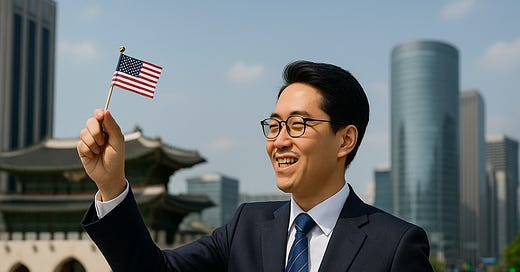Transactional diplomacy started in Korea, not America
The KORUS alliance will survive as long as both sides believe it serves their interests. It will falter when it doesn’t.
Donald Trump’s approach to foreign policy - crude, brash, unapologetically transactional - is treated in Washington as a horrifying aberration. “Allies are sacred," the foreign policy elite gasped. "We don't treat friends like business partners!" But this outrage is theater.
The truth is, America’s alliances have always been about interests, not friendship.
And nowhere is this more obvious - if you bother to look - than in the KORUS alliance.
From the very beginning, the KORUS relationship was a business deal, not a bond of brotherhood. It was born not out of mutual admiration, but out of desperation and cold calculation.
In 1953, after three years of bloody stalemate in the Korean War, Washington was desperate for an armistice. Syngman Rhee, South Korea’s authoritarian president, wanted no part of it. He still dreamed of marching north and unifying the peninsula under Seoul’s rule. A ceasefire was defeat to him.



